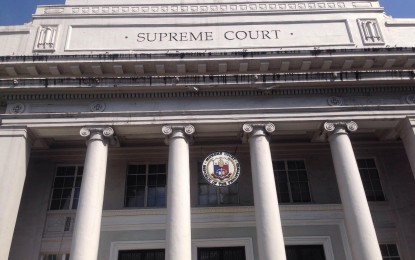
MANILA – The Supreme Court (SC) ordered the suspension of a lawyer who failed to return the money he received from a party as partial payment in the sale of a property.
In its nine-page decision dated October 7 released on Thursday, the SC's First Division found Isaiah C. Asuncion Jr. "guilty of dishonest, deceitful and fraudulent acts" and suspended him from the practice of law for six months with a warning that similar misconduct in the future shall be dealt with more severely.
Asuncion's troubles arose from a complaint on a transaction in 2010 when he agreed to sell 4.4 hectares of property in Banauang, Moncada, Tarlac.
The complainant made a partial payment of PHP100,000 but later demanded the return of the partial payment after Asuncion failed to present documents pertaining to the property.
The complainant, Antonio Aguinaldo, accused Asuncion "of fraud and of using his profession to take advantage of the limited knowledge of the complainant which is in violation of the Lawyer's Oath and the Code of Professional Responsibility".
The Integrated Bar of the Philippines Investigating Commissioner subsequently found Asuncion administratively liable for misconduct for his "failure to disclose material facts regarding the status of the subject property and his obstinate refusal to return the earnest money,"
The court said Asuncion "employed trickery by luring" the party into agreeing to buy the property, adding that Aguinaldo was made to believe that the parcel of land was still owned by his mother when in fact, it was already sold to another buyer.
"Atty. Asuncion failed to disclose the fact that the property is already owned by the Posadas family. This was substantiated by the fact that the respondent failed to produce documents to prove his title/ownership of the property when it was required by the complainant. As a lawyer, the respondent was duty-bound to observe fairness and candor in his dealing with the complainant," the court said. (PNA)
